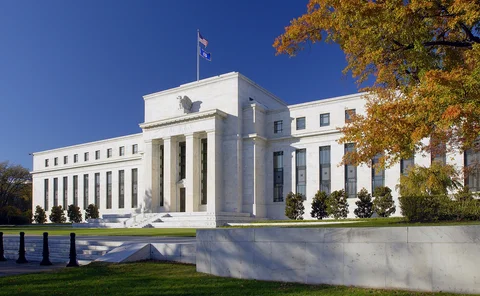CCAR
WHAT IS THIS? The Comprehensive Capital Analysis and Review (CCAR) is a stress test carried out by the US Federal Reserve. It aims to establish whether the largest banks have enough capital to cope with a severe economic shock, and vets their risk modelling practices – creating an annual cycle that has driven huge investments in staff and systems at many banks.
On foreign banks and CCAR, Fed tries something new
Fed is using risk factors, not just size, to decide which overseas firms to test
Goldman Sachs leads US firms on non-bank assets
Non-bank assets of G-Sibs equivalent to 32% of total consolidated assets
Fed study says CCAR has not toughened over time
Higher planned dividends and buybacks to blame for increased capital depletion under stress tests
Fed pushes big banks to calculate CVA for CCPs
Banks including JP Morgan and Credit Suisse told to quantify exposure to CCPs for annual stress tests
A generic stress testing framework with related economic shocks and possible regulatory intervention
In this paper, the authors develop and demonstrate a universal framework for supervisory stress tests of financial institutions that considers the probable dependencies among macroeconomic shocks and possible regulatory intervention.
US mid-sized banks may bulk up. (Is that safe?)
The crisis over a decade gone, the Fed’s ‘tailoring’ proposal will greatly relax rules on the mid-tier
CCAR disclosure sheds new light on modelling default losses
Regulator reveals loss rates for loans and credit cards, but banks say disclosures don’t go far enough
Data gap leaves six foreign banks in US regulatory limbo
New Fed FBO proposal relies on an indicator that banks have not yet been reporting
Central counterparty CVA
Matthias Arnsdorf proposes a method to calculate the counterparty risk related to CCP membership
Fed DFAST models project huge credit card losses
Losses of over 57% estimated for high-risk accounts
Planned US capital buffer endangers shareholder payouts
CCAR-based stress capital buffer would hit healthiest banks harder than weaker rivals
Foreign banks expect Fed proposal imminently
New framework for tiering FBO requirements could come as early as this week
Buoyant US economy, harsher CCAR for regionals
Strong correlation between US GDP variable and CET1 burn at mid-size domestic banks
Modelling interrelated shocks will improve stress tests – research
Call for regulators to ditch standard scenarios for more sensitive approach
Fed stress tests tougher in 2019
Severely adverse scenario projects US economy to shrink 9.4%
Charles River purchase drains State Street’s capital
Depleted CET1 capital ratio spells trouble for 2019 stress tests
Goldman restores capital buffer after Trump tax hit
CET1 ratio hits two-year high
Fed economists float new way to project op risk losses
Researchers suggest combining firm’s size with loss history to best predict losses under CCAR
For US banks, billions in regulatory manna
The unwind should help mid-tier banks, but the G-Sib impact is a complex balancing act
Fed’s CECL relief falls short – regional banks
Banks won’t need to factor loan-loss estimates into DFAST through 2021; no word yet on CCAR
We need a different approach to supervisory stress-testing
Confusing processes turn tests into template-filling exercise, says Garp’s Jo Paisley
Is operational risk regulation forward looking and sensitive to current risks?
This paper evaluates the operational risk capital requirements of large US banks to determine whether they are forward looking, sensitive to banks’ current exposures and designed to allow for risk mitigation.
Fed could soften CECL impact on stress tests, banks say
Risk USA: Firms may be allowed to spread impact of projected losses across CCAR cycle
Banks warned of capital add-ons for legacy Libor contracts
UK regulators’ letter to firms could be followed by Pillar 2 charge to speed transition to Sonia


















